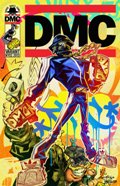Burma Hip Hop
 LokoOne
1,823 Posts
LokoOne
1,823 Posts
Cool article I lifted off smh.com.au Myanmar youth use hip-hop music to speak their mindsNot many luxury cars ply the roads of impoverished Myanmar, so when Ye first saw one gliding along a Yangon street, he immediately starting dreaming of the day he would have his own.Keenly aware that his dream might never come true, the 23-year-old musician decided to write about his feelings instead.The result was a rap song called "Money"."Colourful cars passing through my sight, it spotlights unequal lives," read his lyrics. "I look at back my life. There is no rice. I look at my pocket. There is only 500 kyats left. I want to have more than that."Myanmar's urban youth live in a country where censors for the ruling military strictly limit their access to international television, music and the Internet.But even in this most isolated of nations, American hip-hop culture is influencing young people, who have adopted the music and style as their own."Except for breakdancing, I'm crazy about everything hip-hop -- rapping, DJ-ing, graffiti art and fashion as well," said Ye, who goes by just one name and performs as YE2.With half his face hidden beneath a blue baseball cap, and big earrings held in place by screws, Ye says he likes to write songs about "money, social prejudice and youth".He started out performing with two rapper friends, and they scratched together some money to put together an album on their own and came up with a compact disc with four tracks, which they released in 2005."We didn't have any spare money. We split the fees for the music arrangement. That was so expensive for us," he said.Ye said he and his friends spent about 220,000 kyats, or 180 US dollars to produce their four songs -- a fortune in a country where many workers earn less than one dollar a day.Even in a city where electricity runs for as few as six hours a day, Ye and other hip-hop artists say they rely on computers to create sounds that have never been heard here."Combining technology and creativity, we try to create something new. To find a beat for a song, sometimes we stay up all night working on it," said 21-year-old DJ Kavas."Our musical sense is not limited by theory or notes. Depending on the mood of the music, we can explore many forms of music," he said. "We have found freedom and originality in this music."-- Freedom is rare in Myanmar --Freedom is rare in anyone's life in Myanmar. The military has ruled here since 1962, maintaining its grip by deploying legions of secret police and informers to keep watch over the population.The ruling junta beats down any dissent with a brutality that erupted into the international spotlight last September, when soldiers opened fire on peaceful anti-government protests led by Buddhist monks.In such a repressive environment, 24-year-old rapper Thuta said hip-hop was the only way for him to express himself without fear."We can talk freely in our music. We can just sing by knocking a beat on a desk, while just sitting there. This way we can communicate directly with people in the streets," he said."Hip-hop is a spoken music," said another musician, 23-year-old Chan Duu. "It is like an outlet for us. We can open up our hearts through music."They may feel free when they perform, but it's another story all together when they record their music. Censors comb through their lyrics for any possible offence and often require changes before allowing them to sell their albums.Thuta said the censors did not like the word "shout" in one of his songs -- they ordered him to replace it with the word "happy"."Then my song sounded crazy! Sometimes I sing the song and just mute out the censored words" so fans will know where the censors have ordered cuts, he said.Censors also keep tight control over radio stations, forcing young artists to find other ways to reach listeners. So rather than hope for radio time, hip-hop musicians give free CDs to Yangon's ubiquitous teashops to play on their small stereos.If their music becomes popular in teashops, the musicians might win a slot at a music festival, which is the gateway to finding a professional producer and tapping into a bigger audience.Ye succeeded in doing just that, playing at a festival where he won an award, which in turn led to a producer putting some of his music on a new compilation album.With his newfound success, Ye said he no longer dreams of buying a luxury car."I want to buy some walls, and I want to write everything I feel on the walls, with words or with images, to practise hip-hop culture through graffiti," he said."I want to be free to tell people what I feel through my words and images." 

